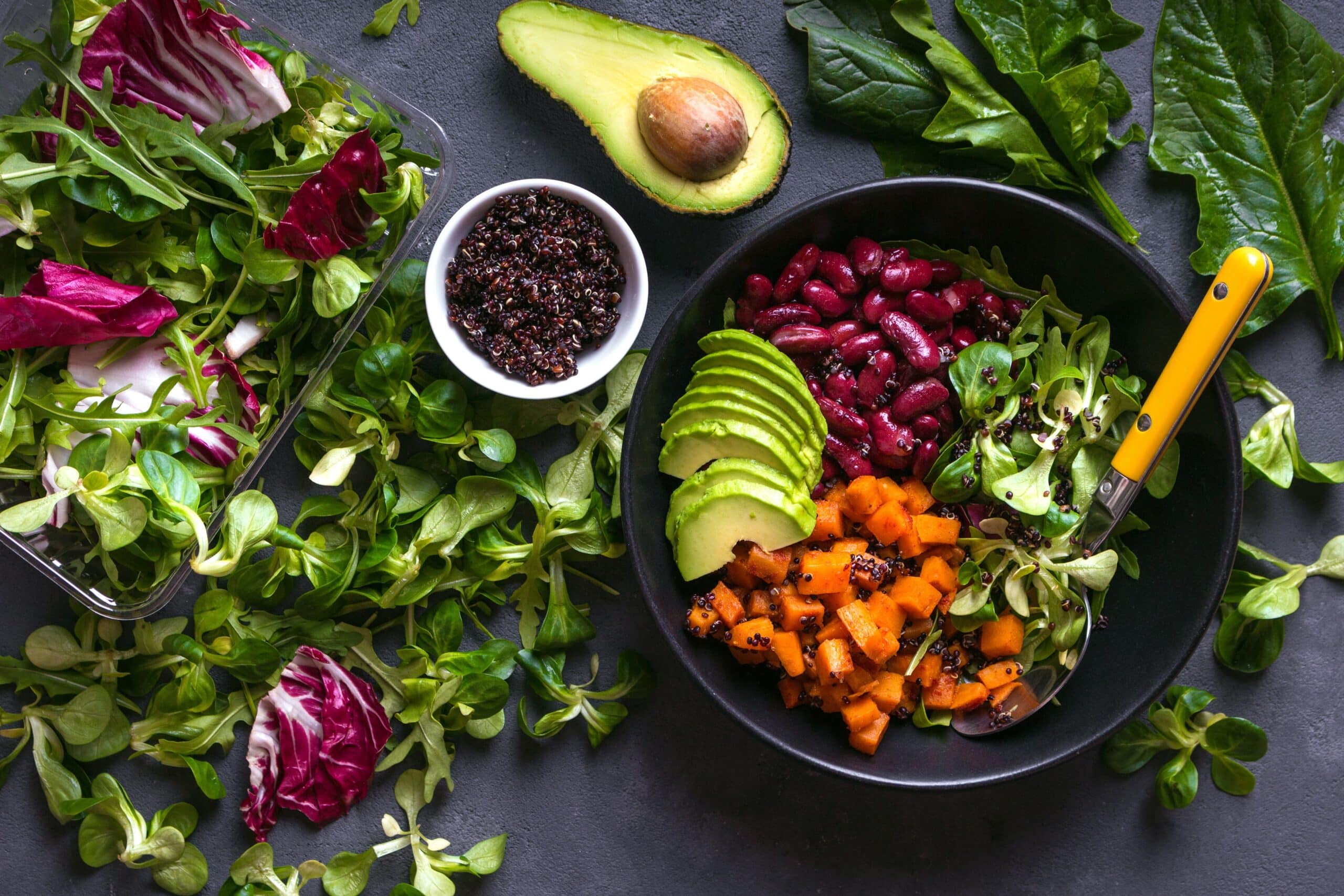The quantity and type of food that you consume impacts your energy levels during the day, even though all food can give you energy, some contain nutrients that can help to increase energy levels and maintain alertness as well as focus and positivity.
One of the reasons bananas make a great addition to breakfast or as a snack is because they are one of the best food choices for energy being an excellent source of complex carbs, potassium, and vitamin B6 to help boost energy levels.
Not only are apples one of the most popular fruits, but they are also great sources of carbs and fiber with a rich content of natural sugars that provides a slow and sustained energy release. Additionally, the antioxidant content may slow the digestion of carbs further so they release energy over a more extended period of time.
Let’s not forget how important staying hydrated is, water is essential for life being involved in many cellular functions which include energy production. When you don’t drink enough water you can become dehydrated which can slow bodily functions to make you feel tired and sluggish. Water can provide a boost of energy and help to fight feelings of fatigue.
Whole grain cereals like oatmeal can provide long-lasting energy. Oatmeal is rich in vitamins and minerals that help the energy production process which combined helps to promote sustained energy release.
One of the more popular choices to help fuel your day is unsweetened yogurt. This great snack option has carbs that are mostly simple sugars that when broken down provide ready-to-use energy, and it is a source of protein that helps to slow the digestion of carbs slowing the release of sugars into the blood.
Brown rice contains 2 grams of fiber and provides a large portion of the recommended daily intake of manganese which helps to break down carbs and proteins to generate energy. It also has a high fiber content and low glycemic index to help regulate blood sugar levels and promote steady energy levels.
Quinoa is becoming popular for good reasons, it may be high in carbs but it has a low glycemic index indicating that the carbs are absorbed and released slowly to provide a sustained energy level while also providing a rich supply of fiber, vitamins, and minerals such as manganese, magnesium, and folate.
If you are looking for an extra boost that is delicious and nutritious sweet potatoes may be an option for more energy. One cup of these tatters can contain up to 25 grams of complex carbs, 3.1 grams of fiber, 25% of the RDI for manganese, and 54% of the RDI for vitamin A which when combined prompts the body to digest then slowly to provide you with a steady supply of energy.
Oranges have a claim to fame for their high vitamin C content, just one orange can provide 106% of the daily recommended intake for vitamin C. The antioxidant compounds within oranges can also help to protect against oxidative stress which can promote feelings of fatigue.
Strawberries are yet another tasty energy-boosting delicious fruit. These berries provide carbs, fiber, natural sugars, and vitamin C to help fight inflammation and the antioxidant compounds will help to fight fatigue and enhance energy levels.
Dark chocolate contains antioxidants that have been shown to have many health benefits like increasing blood flow, and this effect helps to deliver oxygen to the brain and muscles which improves their function. The increased blood flow production may also help to reduce mental fatigue and improve moods. This yummy treat also contains stimulatory compounds like theobromine that has been shown to enhance mental energy and moods.
Chia seeds, flax seeds, and pumpkin seeds may help to increase energy levels as they are high in plant-based omega 3 fatty acids which help to fight inflammation and fatigue. Seeds are also a great source of fiber and protein that contribute to the slow digestion of their nutrients resulting in a slow and steady sustained release of energy.
Nuts are a great go-to for snacks and energy promoting nutrients thanks to their high caloric density and abundance of proteins, carbs, fiber, antioxidants, and healthy fats that help with inflammation and a steady sustained energy boost. The vitamin and mineral content like manganese, iron, B vitamins, and vitamin E also increase energy production and help to decrease feelings of tiredness.
Don’t forget about those nutritious leafy green vegetables which are typically rich sources of nutrients that promote energy because they are high in iron, calcium, magnesium, potassium, and vitamins A, C, E, and K as well as folic acid, fiber, and potent antioxidants. Iron deficiency can cause fatigue, leafy green veggies are excellent sources of iron to replenish the loss, and they contain vitamin C which enhances the absorption of iron in the body. Additionally, leafy greens enhance the formation of nitric acid which helps the blood vessels widen to promote better blood flow throughout the body to deliver oxygen to your organs and muscles.
This is just a shortlist of the abundant variety of tasty and nutritious whole foods that are available to help boost your energy levels because they contain compounds that are involved with the production of energy within your cells, and they provide many other health benefits as an added plus. If you are looking to get more energy incorporating more healthy whole food choices like avocados, beans, cherries, salmon, eggs, tuna, Gojo berries, edamame, lentils, beets and those listed above may be something to think about. Enjoy.




